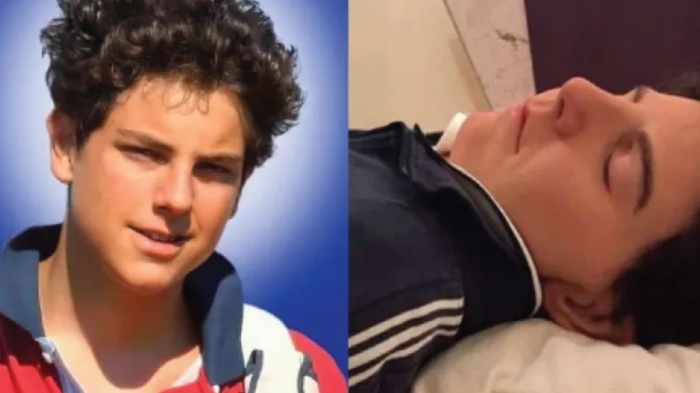
A 15-year-old Italian boy who loved video games and coding will be declared a saint this Sunday, becoming the Catholic Church’s first millennial to receive the title. The ceremony will mark the Catholic Church’s effort to connect with a younger generation through a modern figure who embraced faith and technology.
Carlo Acutis, who died of leukemia in 2006, gained international attention after Pope Francis referred to him as “God’s influencer.” He has became known among Catholics as the patron saint of the internet.
Born in London in 1991 to Italian parents, Acutis was raised in Milan, where his early life was defined by a growing passion for Catholicism.
While his peers were playing video games and watching TV, Acutis attended daily mass, prayed regularly and worked on religious websites from a young age, according to CNN.
He created a digital catalog of Eucharistic miracles that was translated into nearly 20 languages and remains widely used. He also created websites for parishes and Catholic organizations, while limiting his own screen time to just an hour of gaming per week.
Francis noted in a 2019 text that Acutis had resisted digital distractions and instead used technology “to communicate values and beauty.”
His rapid rise toward sainthood has included an unusually fast canonization process. Acutis was beatified in 2020, just 14 years after his death.
Last May, Pope Francis approved the second miracle required for canonization, the healing of Valerie Valverde, a 21-year-old woman who survived a brain hemorrhage. The first miracle was the recovery of 6-year-old Matheus Lins Vianna from a severe pancreatic condition in 2010, Vatican News reported.
In Campo Grande, Brazil, where the first miracle took place, thousands gathered this week for Canonization Week events. A blue sweater worn by Acutis and classified as a relic was displayed at São Sebastião Parish, escorted there by firefighters on Monday. It will remain there through Sunday’s ceremony, after which it will be permanently housed at the parish.
Public events around the canonization include vigils, processions and a public lunch following the Vatican ceremony, which will be broadcast live from Rome to São Sebastião Parish beginning at 4 a.m. local time.
First Lady Mônica Riedel attended one of the events and remarked that Acutis’ story “strengthens our Catholic faith.”
This Sunday’s canonization will also be the first conducted by Pope Leo XIV, who succeeded Pope Francis following his death in April. Their ceremony was originally scheduled for April but was postponed after Pope Francis’ death.
Carlo will be canonized alongside Pier Giorgio Frassati, another young Italian who died in the 1920s. Acutis’ fame has grown steadily in recent years, particularly among young Catholics who see him as relatable and approachable.
In Chicago’s Northwest Side, the Blessed Carlo Acutis Parish and school host comic book readings about his life, discussions about miracles attributed to him and masses where children carry items linked to him, like a soccer ball or laptop.
At the parish school, eighth-grader Sona Harrison described Acutis as “a lot more relatable” than most saints.
“I definitely feel like I’m closer to God when I read about him,” she said, according to The Associated Press.
Nine-year-old David Cameron told AP he admired Acutis’ ability to limit himself to just one hour of video games a week.
Acutis was not a perfect student, according to teachers at the Tommaseo Institute in Milan, where he spent most of his early school years.
His religion teacher, Sister Monica Ceroni, told Catholic News Agency that he often forgot homework and showed up late but was full of curiosity. He had a passion for faith, she said.
Teachers remembered him as joyful and playful, yet also unusually sensitive to those around him. He defended a classmate with mental disabilities who was being bullied and looked out for peers who were neglected at home.
In high school at the Jesuit-run Leo XIII Institute, he was known to pray in the chapel during breaks and speak confidently about his beliefs, even when his views were unpopular among peers.
He stood out from his more affluent classmates by giving up new sneakers and asking his mother to donate the money instead. He spoke with classmates about chastity and asked cloistered nuns to pray for those who partied and used drugs, CNA notes.
Acutis died in October 2006 just as he began his second year of high school.
At his funeral, Ceroni said the church was full, including many poor people. She recalled their last meeting, just weeks before his death, outside the parish church.
“He was happy to be back at school. He said he wanted to focus on computer science. I will always remember him this way,” Ceroni said.

















